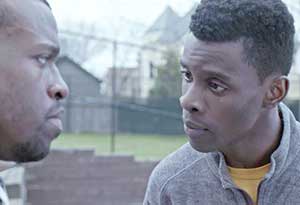
The short film “Jahar” examines the relationship between Dzhokhar Tsarnaev and his friends before and after the Boston Marathon bombing.
By Jessica Kenney
On Thursday, April 28, classmates of Boston Marathon bomber Dzhokhar (Jahar) Tsarnaev aired a twelve-minute film as part of the Independent Film Festival Boston at the Somerville Theatre based on the realization that their friend had assisted in carrying out the horrible attacks on Boston. The film, simply titled Jahar was written by Henry Hayes and Zolan Kanno-Youngs, both of whom went to school with Tsarnaev at Cambridge Rindge and Latin.
The friends tried to write this film a couple times. At first, Henry Hayes, director of the film, states, “The emotions were a bit too raw,” and that they revisited the idea a year later, at which time it was written.
Hayes explained that the film was fictionalized, focusing on a “college student from Cambridge” but not a specific one of Jahar’s friends.
The film opens up with a powerful scene in which one of Jahar’s friends sees the name “Dzhokhar” on the news. While his roommates have trouble pronouncing the name, Jahar’s friend knows it well.
A particular theme in this movie was the mispronunciation of Jahar’s name, and this theme was even comedic at times, as it was sometimes pronounced as “Jizz” by his friends.
The film flashes back to when the boys were all still in high school together, playing basketball and getting high. A conversation is conducted where the friends assure each other that they “won’t forget this place,” meaning their current hometown in Massachusetts. The conversation proves eerie, as viewers know what is to come.
Jahar often supplies his friends with car rides. One night, he is planning to take them into the city, but he suddenly changes his mind, informing them that he “needs to help his brother with something.” That scene reflects the media controversy about whether Tamerlan Tsarnaev, Jahar’s older brother, brainwashed him into conducting the attacks or if they were equal partners in plotting the crime.
After the bombings, Jahar’s friends are left to make sense of what happened. Some believe their friend is innocent while others doubt the person they once knew.
The last scene of the film depicts a police officer conducting an interview with one of Jahar’s friends. The final line is a question everyone is curious about: “What kind of person was Jahar?” The question lingers long after the film concludes, as it encourages viewers to ask themselves: was he originally the kind of person depicted in this film or someone more sinister?
Hayes states that he and Kanno-Youngs simply want to tell their personal story with this film. “We want to make it very, very clear that we do not want to compare our pain to the victims’. This is a smaller pain.” Jahar’s friends feel that their narratives and their healing process have definitely been suppressed in the media. This film calls on viewers to hear their story, another side of the tragic Boston Marathon bombing saga.
Jahar is s a powerful film. It shares with viewers the pain and difficulty that Jahar Tsarnaev’s friends faced in learning about the attacks at the Boston Marathon in 2013. It calls on audience members to simply consider their story, and perhaps ask themselves some questions about the person they’ve seen on the news time and time again. A blend of comedy, tragedy, and real life events, Jahar is a potent cinematic depiction of the aftermath of the Boston Marathon bombings.














Reader Comments